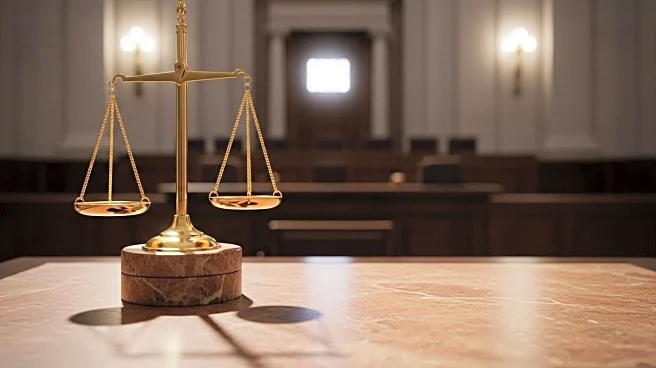What is the story about?
What's Happening?
Federal judges have expressed frustration with the Supreme Court's handling of cases involving the Trump administration, particularly criticizing the court's tendency to overturn lower court rulings with minimal explanation. This practice, according to the judges, undermines the judiciary's integrity and leaves lower court judges without clear guidance. The criticism comes amid a rise in threats against judges, with over 400 threat investigations reported by the U.S. Marshals Service this year. The judges argue that the Supreme Court's emergency rulings, often lacking detailed reasoning, validate criticisms from the Trump administration and its allies, suggesting bias against Trump. The judges have called for more transparency and explanation in the Supreme Court's decisions to maintain judicial independence and public trust.
Why It's Important?
The criticism from federal judges highlights a significant concern about the balance of power within the U.S. judicial system. The Supreme Court's approach to handling Trump-related cases could potentially erode public confidence in the judiciary's impartiality. The lack of detailed explanations in emergency rulings may lead to perceptions of bias, affecting the judiciary's credibility. This situation also underscores the challenges faced by lower court judges, who must navigate complex legal issues without clear guidance from the Supreme Court. The increasing threats against judges further complicate the judiciary's ability to function independently and safely, raising questions about the protection and support provided to judges handling high-profile cases.
What's Next?
The ongoing tension between the judiciary and the Trump administration may prompt calls for reforms to ensure greater transparency and accountability in the Supreme Court's decision-making process. Legal experts and policymakers might advocate for changes to the 'shadow docket' system to provide more comprehensive explanations for emergency rulings. Additionally, there could be increased efforts to enhance security measures for judges facing threats, ensuring their safety and ability to perform their duties without fear of retaliation. The judiciary may also seek to strengthen its communication and collaboration with the Supreme Court to address concerns about judicial independence and integrity.
















